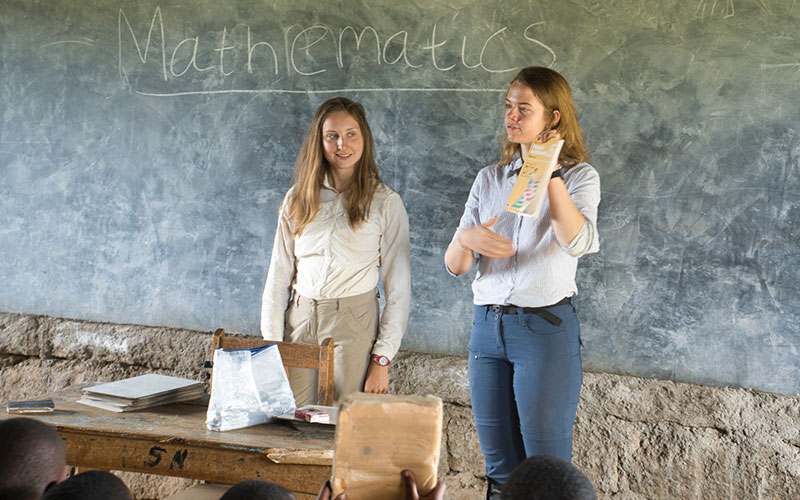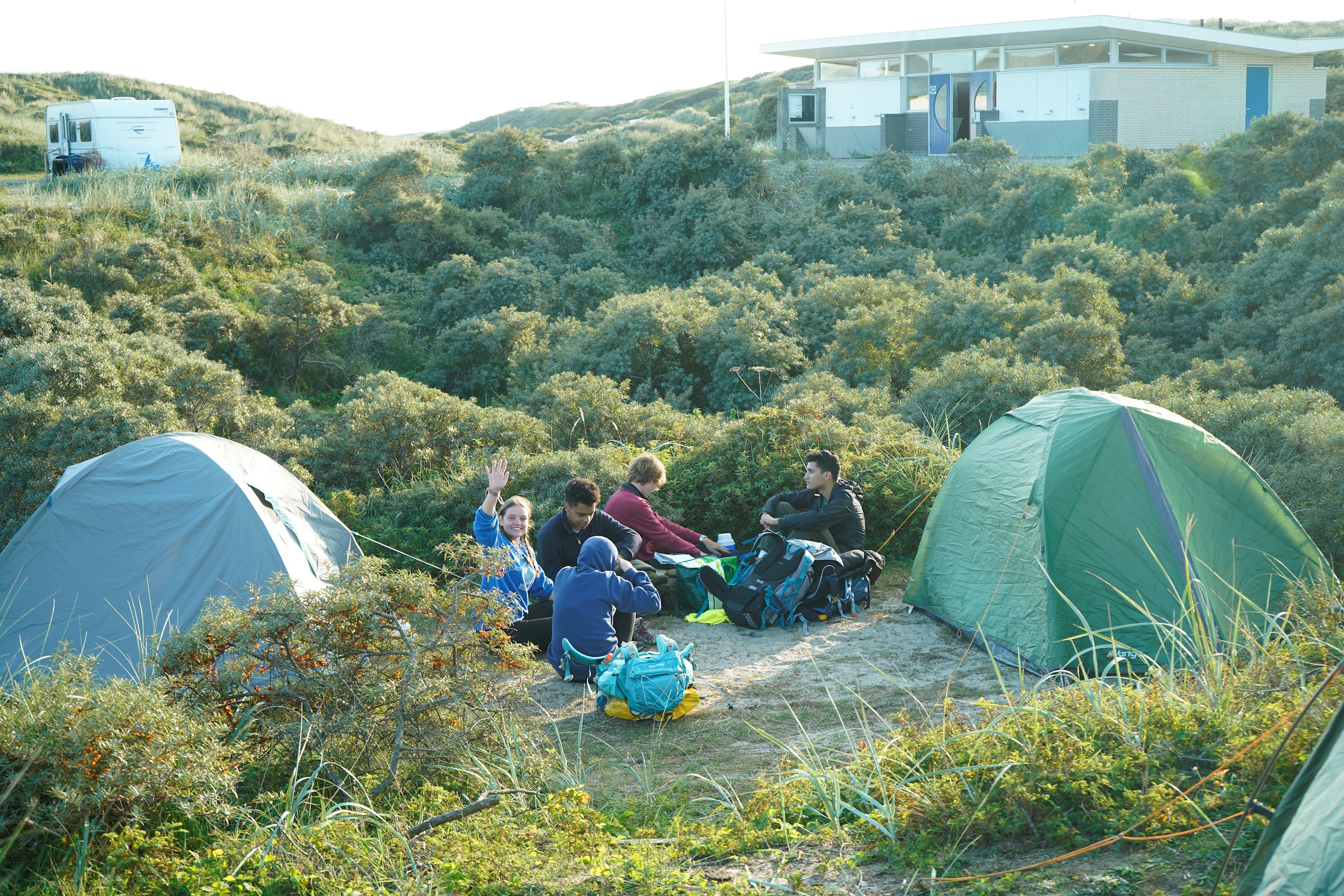The International Award provides students with the opportunity to learn important life skills such as responsibility, perseverance, organisation and teamwork.
The ethos behind the framework of the International Award is that students take ownership and responsibility for their own activities and progress.
Senior School Voorschoten is currently the largest provider for the award in the Netherlands, with approximately 220 students of different ages participating each year.
We have dedicated teachers acting as trainers and assessors supporting them in their efforts.
Students pursue three different activities:
- a physical activity
- learning a skill
- a volunteer activity
For each activity, they set a goal for themselves that they work to achieve.
The students work together in teams and go through a rigorous training programme in the run-up to a final assessed expedition at each level.

Bronze Award
The Bronze Award is the first level of the International Award and is offered to our students in Year 10. It is a very popular activity for our students, and usually, we have approximately 110 students participating each year.
Two activities have to be pursued for 13 weeks (one hour per week) at the Bronze level. The third activity is the students' major activity and has to be done for 26 weeks. Typically, students can use a variety of extra-curricular activities to tie in with the expectations of the Award.
The expedition is always a highlight each year! Students have a practice expedition, in which they learn practical skills like packing, navigation, putting up tents and cooking on a stove. They camp overnight with their teammates, and students always make long-lasting memories.
Silver Award
The Silver Award involves a step-up in challenge and time commitment. The Year 11 students must complete 26 hours of all three activities throughout the year. They build upon skills and experiences from the Bronze Award and often take on higher levels of independence and responsibility for themselves.
The expedition is three days of walking and two nights of camping at this level, and we often try to include some fun, relaxing team-building activities for the students at the end of their expedition.
Gold Award
The Gold Award begins in Year 12, and at this stage, students really know what they are doing. Students are required to complete a full year of each of the activities. On top of this, there is a residential project for a period of five days; the students must arrange this for themselves, working with adults they have no prior connection with and learning about an area of life that is new to them. Most students complete this during the summer holidays after Year 12.
The expedition is four days and three nights at this level and includes spot navigation challenges in addition to a planned walking route.
Students can have a lot more say in where they would like to go for their expedition, and it’s fantastic to see them so engaged in researching and planning this.

It is a joy to see the sense of achievement students gain from their participation in the Award and the positive impact the experience has on their approach to school. The skills and memories that students build are meant to prepare them for their future life.
We celebrate the students in an award ceremony, an example of which can be seen below:








.JPG)
